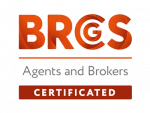Covid-19 & The UK Food Supply Chain

Recent Posts
Categories
On the 29th of December 2019 China reported the first cases of an unknown virus linked to pneumonia cases to the World Health Organisation. On the 11th Feb 2020 it was named COVID-19 by the WHO, and subsequently in March 2020 it was declared a pandemic.
During the Chinese New Year celebrations, the government put most of mainland china into lockdown to help limit travel and thus preventing the spread of the virus. Many factories were closed throughout the country but specifically within Wuhan. During this time, scheduled shipments out of the country were delayed and, as a result of customers feeling the need to pull more stock out of China, a shortage of empty containers was also an issue.
Now with much of the Chinese population being back at work, and restrictions finally lifted in Wuhan (8/4/20) shipments are now beginning to leave port again. However, with the transit from China to the UK being 44 days we are now feeling the effects of original delayed shipments from back in February.
Other countries are also implementing travel restrictions to different effects, India have implemented a complete lockdown, thus processing factories are closed. The EU have encouraged working from home were possible and closed some borders, though food processing factories can remain open (so long as they are complying with social distancing measures). There is a current shortage of pickers and factory staff as many are employed from abroad on seasonal contracts. Other examples of restrictions implemented are in Guatemala where they have imposed curfew between the time of 4pm until 4am and in Serbia where it is 5pm to 5am. All these measures are having differing effects on the number of staff available to work and thus decreasing productivity, and ingredient availability.
With the UK importing 47% of food consumed from outside its borders, there has been a lot of questions asked about our supply chain and how COVID-19 will affect availability. This has been highlighted particularly during the ‘UK Panic buying saga’ at the beginning of March where many nonperishable items such as pasta and tinned goods were purchased, stripping supermarket shelves.
Since the UK entered lockdown on the 23rd of March 2020, the supermarkets have managed to slowly restock shelves of these essential items, with the help of limiting number of customers in shops and number of items per person restrictions.
One impact that has been identified is the reduced demand for ‘food to go’ items such as meal deals. With many people now having to consider lunch as a home cooked meal rather than a grab and go sandwich. This has affected many manufacturers within the UK food to go industry.
Another industry that has been affected within the UK is the food service market. With the closures of schools, cafés, hotels, restaurants overnight the companies servicing these markets will be feeling the effects. It is also worth a note that many of these food service companies also supply the NHS, so it is vital they are supported to ensure hospitals are still receiving food.
Here at Uren we are in regular contact with our suppliers and customers across the world and endeavouring to ensure continuation of supply at all levels during this difficult period.











